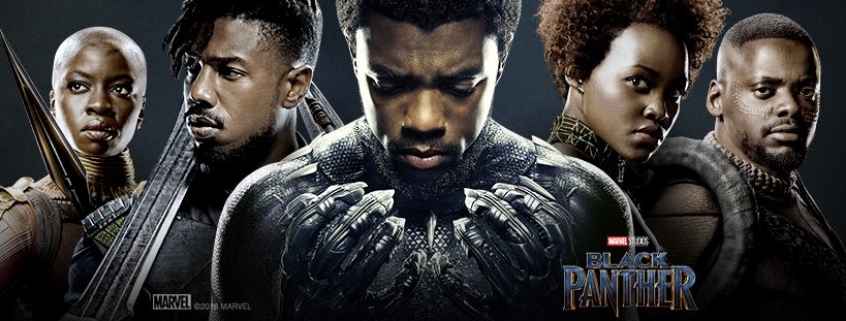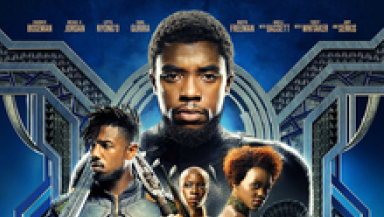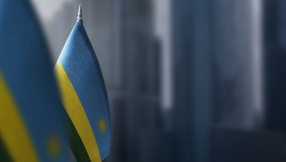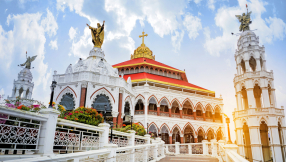Black superheroes matter. Marvel's latest movie carries a weight of cultural significance like none of its predecessors, finally demonstrating that despite the overwhelming precedent, not all heroes need to be white men with American accents. Black Panthertakes place mainly in Africa, features an almost all-black ensemble cast, and draws heavily on Black cultural heritage. As a white man, I can't fully appreciate just how important that feels to black movie-goers, and of course, it's a scandal that we're almost 20 films in to the Marvel Cinematic Universe (MCU) before we get a movie with a black lead. But this isn't just a highly anticipated comic book film, it's an important cultural moment. Perhaps it's the moment when Hollywood starts to catch up with genuine equality.

Of course, it would have been rather awkward if Ryan Coogler's epic had been a bit of a duffer, which given the high bar set by recent MCU films, was always a possibility. Thankfully it's anything but: it's right up there with some of the best films in the series. Chadwick Boseman is fabulously charismatic as central character T'Challa, the King of the fictional nation of Wakanda who moonlights as a baddie-kicking ninja in a near-invincible suit, and the story of his challenge to hold on to the throne while figuring out his own leadership ethics is constantly interesting and entertaining. Unlike so many of the other MCU films, this really does work as a standalone piece, linked in to the rest of the meta-narrative but a great story on its own merits.
What's so refreshing about the film – aside from the racial make-up of its cast – is that it feels so different to the previous entries in the series. Instead of yet another battle between robotic invincible thugs in bland cityscapes, the action mainly takes place against glorious African landscapes, full of colour, music and impressively large rhinos. It is distinctly and deliberately African throughout, despite being set in a fictional country, and constantly references culture that is non American, and non-white. As a result the experience of watching the film is both surprising and rewarding to the comic-book-movie fan; it feels like both a part of the larger universe, and a completely new take on the superhero movie.
The rich visual design constantly dazzles, from occasional visits to a supernatural 'ancestral plane' to a breathtakingly brilliant chase sequence through the South Korean city of Busan. Coogler uses his big set-pieces sparingly, but when they arrive they are frenetic and visceral, as in the brilliant multi-layered final battle. Perhaps most pleasingly for long-term fans of the series, he actually manages to give us an interesting, relatable bad guy in the shape of Michael B Jordan's Killmonger, who manages to be more than just a one-dimensional evil intent on destroying the world. And in Danai Gurira – a confirmed cast member for April's Big One Avengers: Infinity War – the film gives us a much-needed new female hero; her character, the royal guard Okoye, is another prejudice-kicking element in a film with an overwhelming scent of progress (in fact, women are in key roles throughout the film, which passes the Bechdel test easily).

There are some strong spiritual themes, seen from the very start in an initial origin story which credits some of Wakanda's power to a gift from a 'God'. The characters reference their gods throughout in a 'thanks be to...' sense, while as in 2016's Doctor Strange, there's an acknowledgement of a deeper spiritual force behind the world. Perhaps the element which chimes most directly with the Christian faith though is a recurring theme of death, burial and resurrection (and considering how different the film is attempting to be, it's amazing that we still see a Christ-like parallel in T'Challa's final triumph).
Inescapably though, this is really a film about race, and one which doesn't shy away from the big issues of racism and historic racial oppression. Not only does is have plenty to say about the potential cycle of hatred, violence and oppression that racial discrimination can lead to, but it's also brave enough to suggest that the ultimate expression of black empowerment would see black people choosing to break, rather than continue that cycle. What's brilliant about the premise of Wakanda is that it flips the balance of global and racial power: T'Challa's secret city contains greater technology, wealth and culture than any other nation on earth, and it's from this position of strength that the characters choose whether to wage further race-based violence, or seek to end it.
As I said at the beginning, I can only understand a limited amount of the cultural significance of Black Panther. I am aware of just how much it means to many; earlier this week I was on a youth residential with a group of older black teenagers, and their total excitement about the film was palpable; for once, this felt like a film for them. It's not only for them though, because if black heroes are only really for black people, then we're still locked into the mindset which created so much race-based evil in the first place. It's also important for non-black people to see, and cheer for, black heroes on the big screen. In the end, that becomes the film's point – that we're stronger together, when we celebrate our diversity, and unify instead of divide because of it. Perhaps the film's loftiest ambition is that it might inspire young film-goers of every colour and culture to believe such a thing is possible.
Martin Saunders is a Contributing Editor for Christian Today and the Deputy CEO of Youthscape. Follow him on Twitter @martinsaunders.













